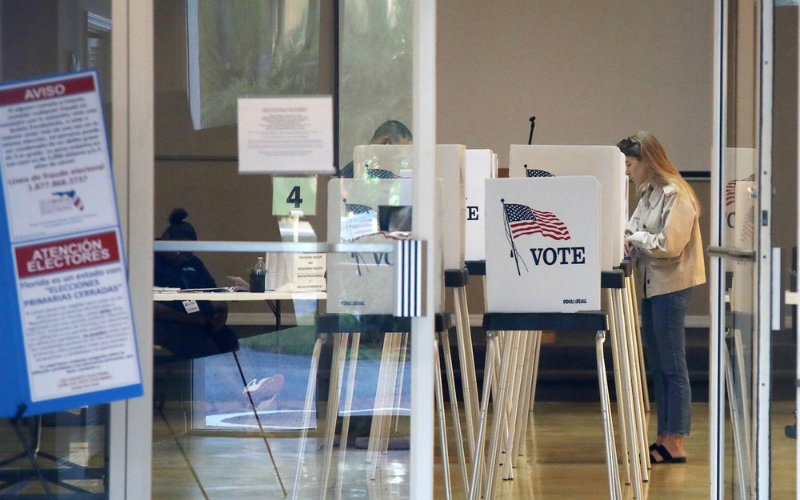Do as I do … or as I say?
A major takeaway from the new study conducted by the Barna Group partnering with Alpha USA and Alpha Canada is that teens are divided when it comes to whether they rely on actions or words to share their faith.
“Half believe ‘letting your actions speak rather than using words to explain your faith’ and ‘inviting someone to attend a church service with you’ (50% each) are acts of evangelism,” Barna divulged. “Other actions they largely view as evangelism include ‘telling your personal story about how you came to be a Christian’ (48%), ‘telling someone about benefits/changes experienced when following Jesus’ (48%) and ‘praying with someone’ (47%).”
Teens may spend much of their days on their smartphones, tablets or laptops, but these are not seen as the vehicle for them to share their faith.
“Despite being the most digital-savvy generation, just under three in 10 Christian Gen Z (28%) say sharing digital/online content with someone is a form of evangelism,” researchers found.
Doing – instead of speaking – is the best way to reach out to the lost, according to Gen Z believers.
“Over four in five U.S. Christian Gen Z teens note ‘letting your actions speak rather than using words to explain your faith to someone’ is most likely to create a positive response among non-believers,” the study divulged.
Specifically, 890 U.S. Christian teens were asked this question between March 5 and April 16: “When it comes to telling a non-Christian about your faith, which of the following do you think would create a positive experience and which would create a negative experience?”
And here are the percentages of teens who replied “very positive” or “somewhat positive:”
Letting your actions speak – rather than using words – to explain your faith to someone (83%)
- Inviting the person to attend a church event with you (80%)
- Inviting the person to attend a Christian youth event with you (79%)
- Inviting the person to attend a church service with you (78%)
- Telling you own personal story of how you came to be a Christian (76%)
- Telling the person about the benefits and changes others have experienced once they decided to follow Jesus (74%)
- Praying with the person as part of our conversation (69%)
- Sharing digital or online content such as a social media post, video, blog or podcast (61%)
- Quoting Scripture or text from the Bible as evidence for Christianity (59%)
- Asking the person to give a reason for their lifestyle choices or beliefs (46%)
Gen Z Christians vs. non-Christians
Barna found that teens – unlike Millennials – rarely view sharing one’s faith in a negative light.
More than 1,300 U.S. Christian Gen Z and non-Christian Gen Z teens were then asked to respond to the prompt: “Imagine you are talking about your faith identity with someone who does not share your point of view. How would you feel during this experience?”
It was found that Christian teens are more likely to view sharing one’s faith more positively than unbelieving teens.
“According to half of all U.S. Gen Z (52% Christian Gen Z, 47% non-Christian Gen Z), talking about faith makes them feel calm,” the research indicates. “Roughly one in three (37%, 30%) agrees they feel peaceful when talking about their faith with someone of a different religious identity. Even so, one-quarter of Christian teens (27%) and over one in three non-Christian teens (37%) admit they feel awkward during this experience.”
Teenagers of faith are nearly twice as likely (25%) than nonbelievers (13%) to feel proud when it comes to faith-sharing.
“Comparing U.S. Christian teens to their non-Christian peers, the former are far more likely to say faith conversations make them feel happy (23% vs. 13%) and excited (21% vs. 11%),” the study states. “Non-Christians are more likely to say these conversations make them feel annoyed (13% vs. 7% Christians).”
Here’s how they responded to various other negative feelings (Christian teen percentages shown first):
- Anxious- 18% vs. 25%
- Stressed- 11% vs. 13%
- Confused- 9% vs. 12%
- Embarrassed- 7% vs. 10%
- Afraid- 4% vs. 6%
- Angry- 2% vs. 4%
- Ashamed- 2% vs. 5%
Removing the barriers?
Barna researchers observed that in general, it is very rare for Gen Z to view discussions across faith lines negatively.
“This [positive outlook] may be because Gen Z is not worried about feeling judged when it comes to conversations on faith,” Barna offered. “Unlike the Millennials who came before them, these teens accept that not always seeing eye to eye is a fact of life, with over four in five (81%) refuting that ‘if someone disagrees with you, it means they’re judging you.’”
Instead of shrinking away from discussing religious views, today’s American teens invite such exchanges.
“Overall, Gen Z come and go from faith-sharing conversations without friction or confrontation – truly desiring to listen and connect – and are likely to circle back again,” Barna concluded.







